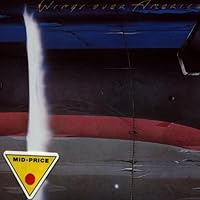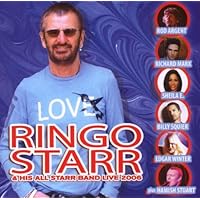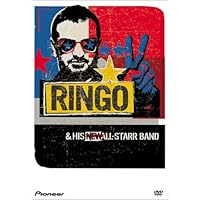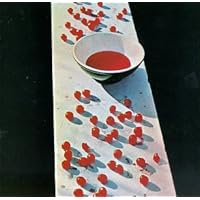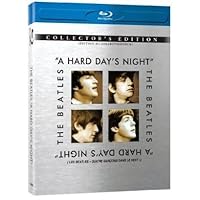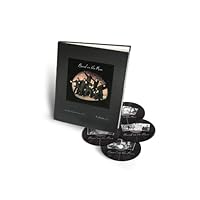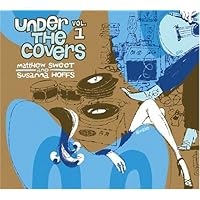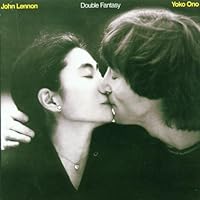
Average Reviews:

(More customer reviews)Note: The Lennon songs alone deserve a five star rating.
While "Double Fantasy" was meant to be Lennon's comeback album, it ultimately served as his sweet farewell.
John Lennon was a very proficient artist throughout most of the 60s and throughout the first half of the 70s. Between 1963 and 1975, a year didn't pass by in which Lennon didn't release an album, first with the Beatles and then as a solo artist. The second half of the 70s, however, saw no new music from Lennon. Indeed, he virtually disappeared from the limelight.
In the early-to-mid 70s, before his musical hiatus, Lennon indulged in his infamous "lost weekend." During this time Lennon was separated from Yoko and indulged in drugs, alcohol and general excess. After this dark phase, Lennon took the second half of the 70s off to find himself. In that time he reconciled with Yoko, became a father, and worked on new music.
November of 1980 saw the release of "Double Fantasy." It was Lennon's first album of original material since 1974's "Wall and Bridges." Although it initially received mixed reviews from critics, it was a hit, achieving gold status within a few weeks. The album's first single "(Just Like) Starting Over" also proved to be a hit single. With a new world tour planned for 1981, Lennon was poised to make a strong comeback and take the 1980s head-on.
But then came December 8, 1980, a night in which the world was robbed of one of its biggest talents.
After Lennon's death, fans went to the record stores in droves to pick up "Double Fantasy." It became one of 1981's top sellers and earned a Grammy. Although it had initially received mixed reviews from critics, it is now regarded by fans and critics alike as one of his finest solo offerings. The album proved to be a sad-but-sweet farewell.
Because "Double Fantasy" was released so close to Lennon's death, it's hard to listen to it and take it out of that context. It's a rather paradoxical listen. The nature of the album is celebratory and positive, yet it was released in the wake of such a tragedy. It's so unfair that a man who was so gifted, so optimistic about the future, should have it all taken away. All this makes "Double Fantasy" a very bittersweet album.
John Lennon's music has always been autobiographical. After the demise of the Beatles, when Lennon was coming to terms with his life and fame, he released his brutally honest masterpiece "Plastic Ono Band" (1970). It was an album of letting go, a total catharsis, a release of all his pent up demons. In 1974, when he was separated from Yoko, lost, and didn't know what to do with his life, he released the confessional "Walls and Bridges," which was a diary of that dark time in his life.
In 1980, Lennon was as happy and fulfilled as he had ever been, and "Double Fantasy" is a testament to that. He was happily married, had a young child, and was eager to get back into world affairs, tour, and make a statement.
"Double Fantasy" sees a joint John Lennon/Yoko Ono collaboration. Both sing and pen every other song, so each artist is surrounded by a song of the other. Often the songs are a response to one another, like a dialogue.
Lennon's last few albums before his hiatus had been brilliant, if unfocused. "Double Fantasy" sees Lennon's best work in years. With Jack Douglas producing and backed by top-notch studio musicians, Lennon came up with a stellar collection of mature and polished, yet rocking songs.
The Fats Domino-esque "Just like Starting Over" gets the album off to a great start. The mid-tempo "Cleanup Time," with its infectious horns has a great hook and keeps the momentum going. The downdraught insecure "I'm loosing you" is reminiscent of Lennon's work from "Walls and Bridges." Lennon's tribute to his son Sean, the new age sounding lullaby-like "Beautiful Boy" is both sincere and gorgeous, without sounding corny. The album's big hit, the mid-tempo "Watching the Wheels" offers an explanation as to Lennon's absence from the music world for the preceding few years. Lennon shows his masterful pop-sensibility for the stunning "Woman." The up-tempo "Dear Yoko" is a good, if not spectacular pop song. The horns add a nice touch. The 2000 remaster addition includes a rough demo of the hymn-like "Help me to help myself," which shows Lennon's desire to keep on the straight-and-narrow path.
Although the format of the alternating John/Yoko songs is an interesting idea for a middle-aged love story concept album, in all honesty, it would have been better if John and Yoko each released their own songs on separate albums. Yoko Ono is creative and a gifted songwriter, but her songs just seem out of place next to John's. That said, there are some good Yoko songs to be found on "Double Fantasy," like the disco-esque "Kiss, Kiss, Kiss," the cabaret-like "Yes I'm your Angel," and the infectious club-beat of "Every man has a Woman who love him."
I never actually listen to "Double Fantasy" as is, per-se. Rather; I have a CDR of all the Lennon songs from "Double Fantasy," and all the Lennon songs from the posthumous follow-up, "Milk and Honey," (1984) which was done in the same John/Yoko alternating format. This makes for a far more consistent and enjoyable listen.
While Lennon's early death is the biggest loss rock n' roll ever faced, it is of some comfort to know that Lennon spent the last few years of his life in high spirits. "Double Fantasy" ultimately serves as an acknowledgment of that, bittersweet as it may be.
Click Here to see more reviews about:
Double Fantasy
Click here for more information about Double Fantasy



